Background:
The Mk7 GTI comes equipped from the factory with an air-to-air intercooler. The stock intercooler is often replaced with aftermarket options that are advertised to provide better performance. The “upgrade” is so common that it is often described as being necessary, providing “massive improvement” over the stock intercooler.
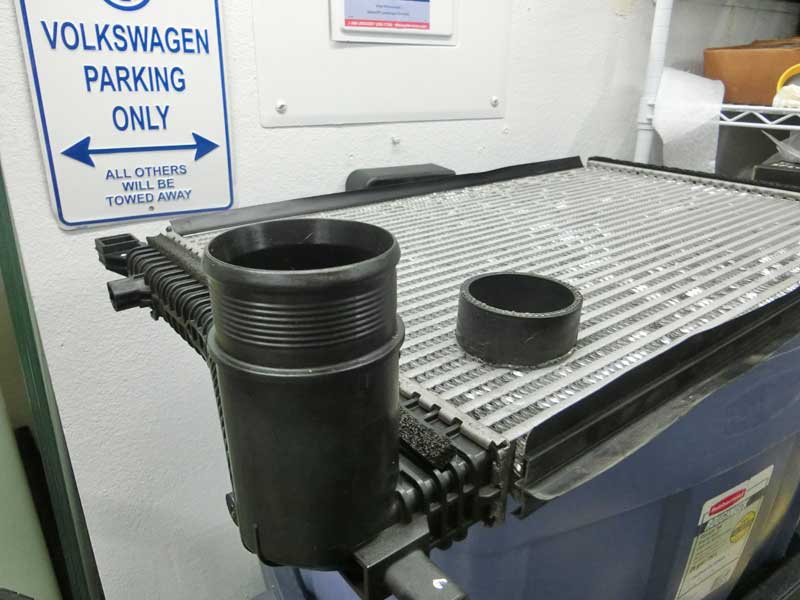
This comparison will be of a stock GTI intercooler and a “typical” aftermarket intercooler.
Airflow:
The stock GTI intercooler flows approximately 198 CFM @ 28″ of H2O. A typical aftermarket intercooler will flow 5-10% more, though there is a wide range in performance with AMS flowing the same as stock and Forge flowing slightly less.
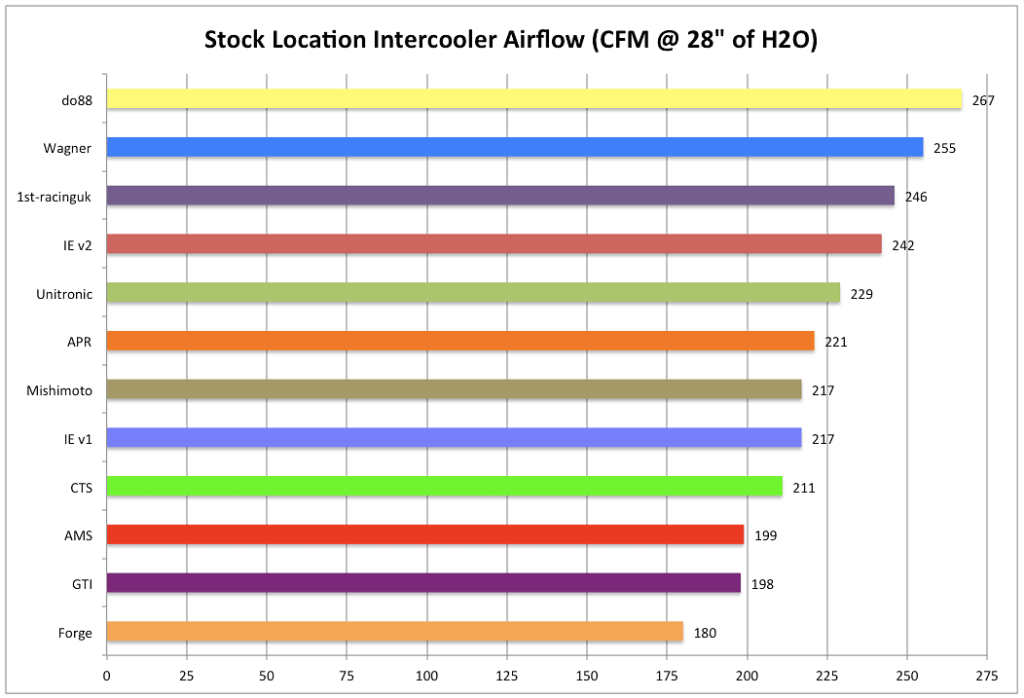
Compared to what are universally larger cores, the stock GTI IC flow rate is competitive.
Temperature:
Airflow / pressure drop is an important consideration, but cooling is why the intercooler is installed on the GTI.
For a comparison of cooling performance street data is being used. Data was recorded using an aftermarket IC, and five days later recorded using the stock IC. Data is recorded during a full throttle 3rd gear acceleration from approximately 2,000 RPM to slightly past 6,000 RPM on the GTI equipped with an IS38+ turbocharger and 93 octane tune.
Note: The tune version was revised between data logging sessions to operate at slightly higher boost, approximately 1 psi above 5,000 RPM. The stock intercooler was tested while operating at the slightly higher boost level.
In the following charts stock IC data is shown with dashed lines and the aftermarket intercooler data is shown with solid lines.
The boost profile for each IC test is similar and is shown in this chart:
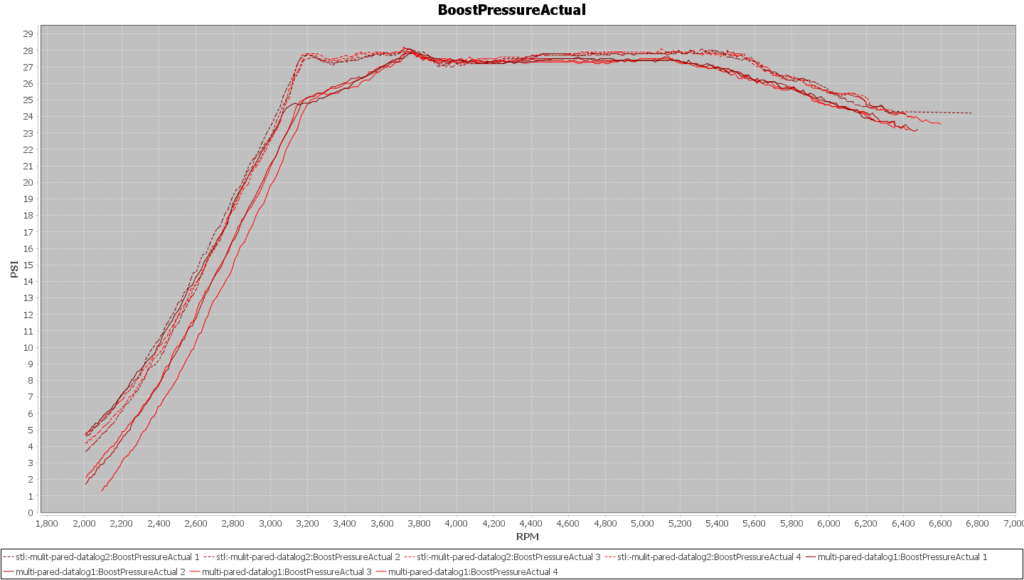
Intake air temperature readings using the stock GTI IC are shown:
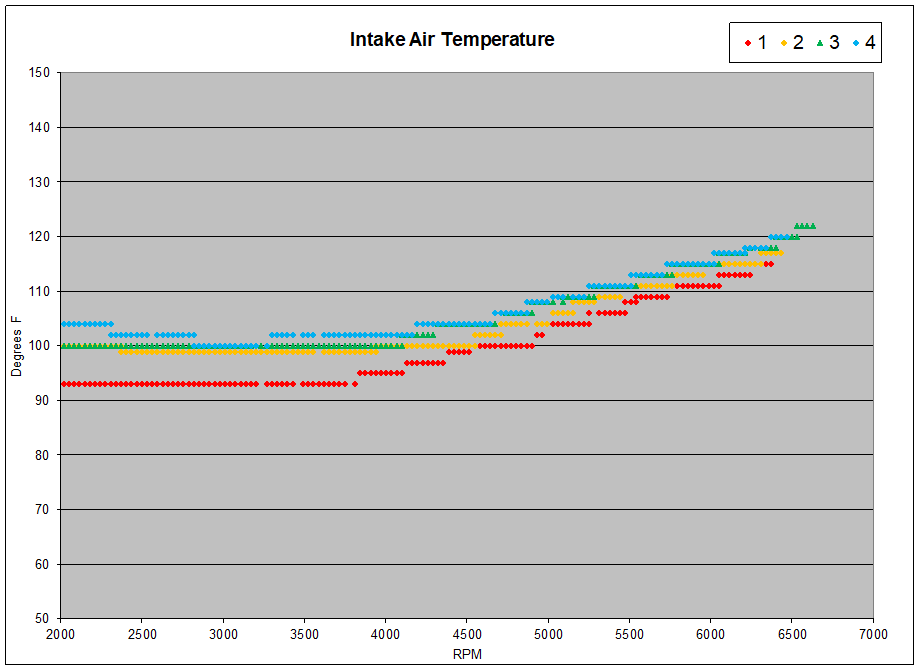
In the next chart the stock IC is compared with the aftermarket IC:
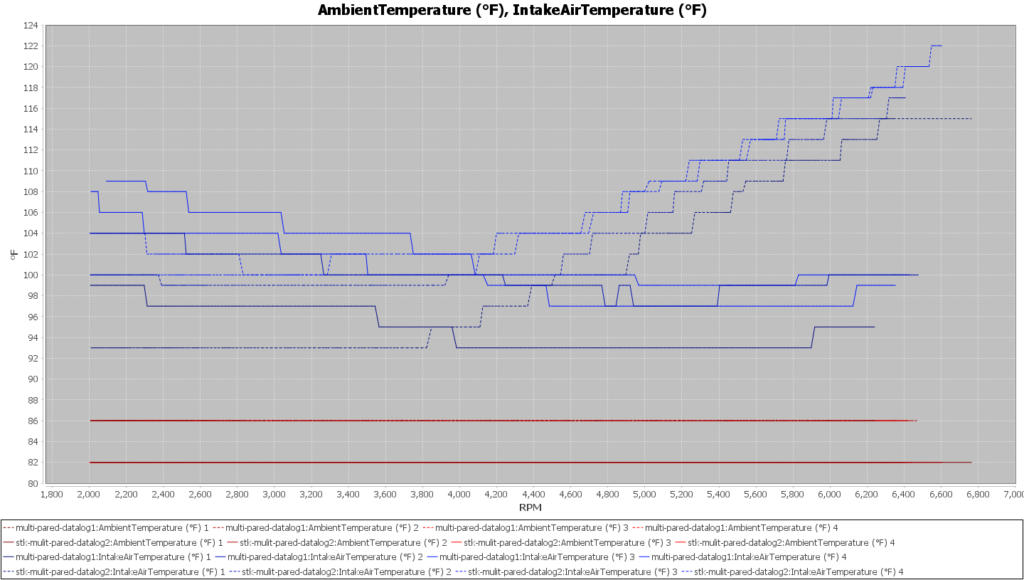
The aftermarket intercooler shows a distinct cooling advantage versus the stock GTI intecooler as engine RPM increases.
The next chart shows the series of data pulls with the stock intercooler:
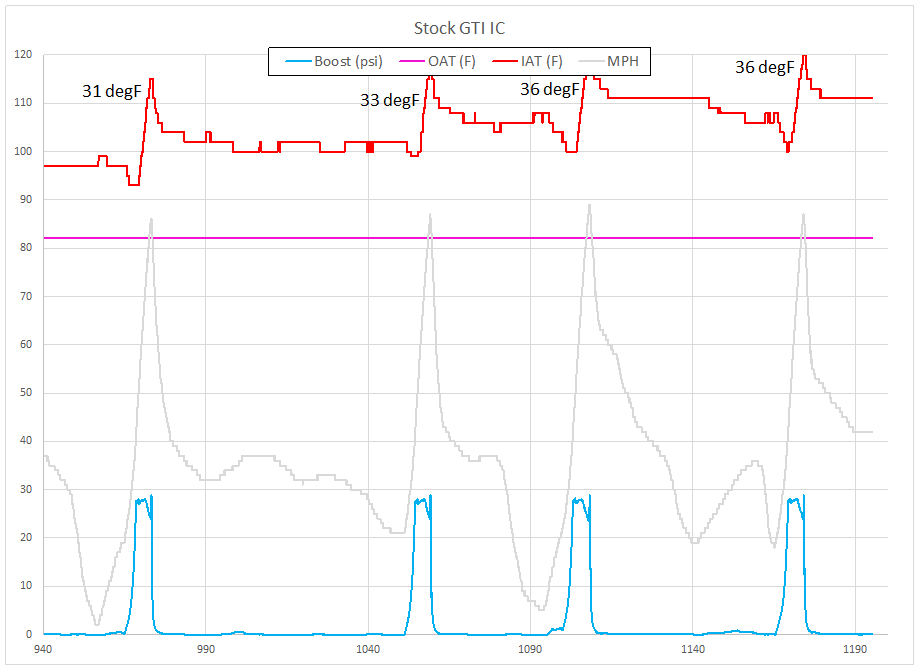
The stock intercooler ends each pull approximately 30 degF above the ambient air temperature with the rise increasing slightly with each subsequent pull.
Next is the aftermarket intercooler:
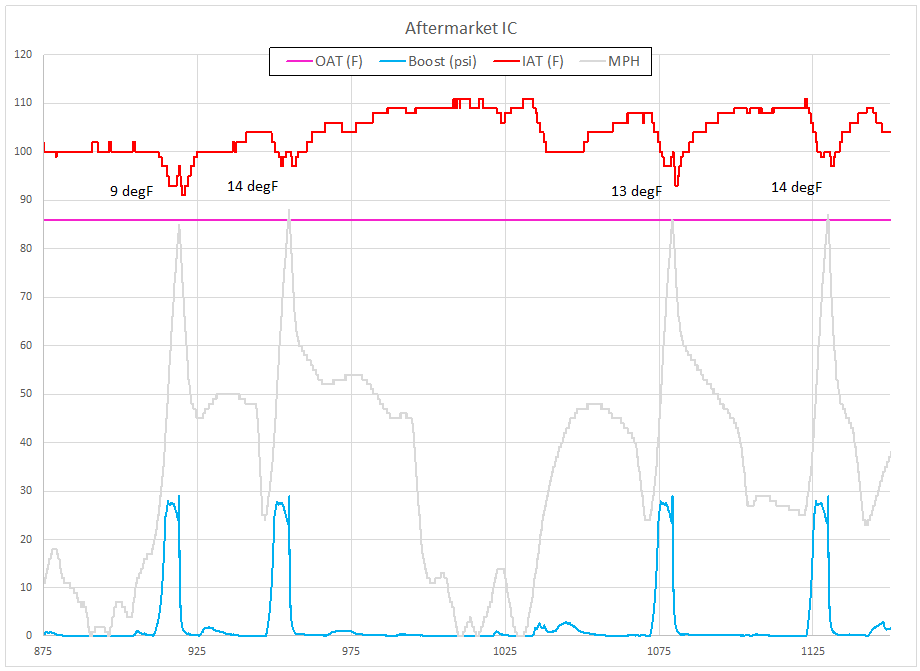
Temperature rise with the aftermarket intercooler is less than half that of the stock GTI intercooler. A slight rise is also evident with the aftermarket intercooler on subsequent pulls.
Other data:
Benefit from an aftermarket intercooler is often made in reference to ignition timing, that the improved cooling performance from the aftermarket IC leads to better ignition timing. The next chart compares the timing angle of the two test cases:
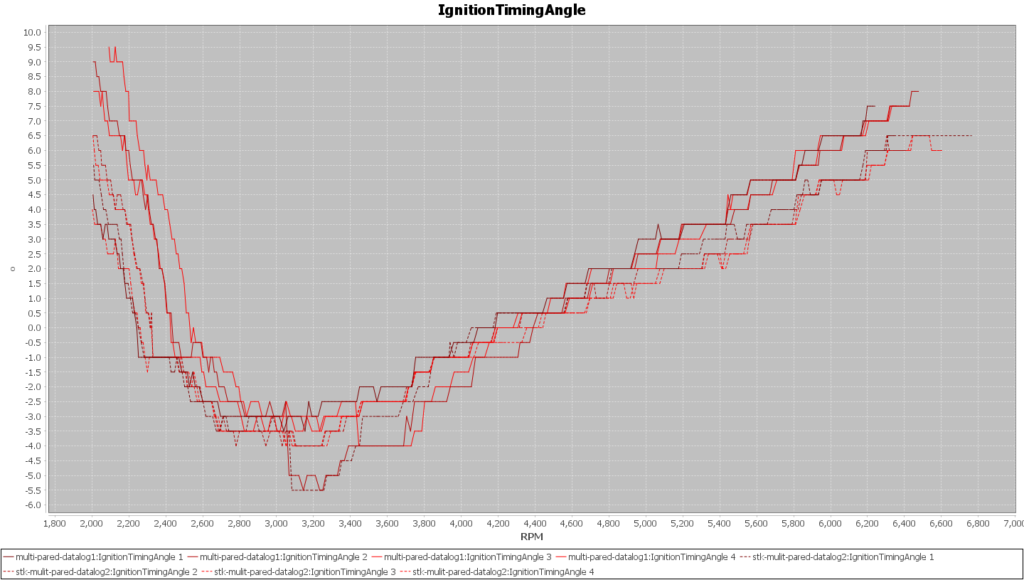
The stock IC timing is slightly less than with the aftermarket IC, although I was expecting to see a difference larger than 1-1.5 degrees which breaks out past about 5,500 RPM.
Looking at acceleration times from 3000-6000 RPM the pulls with the aftermarket IC are slightly quicker:
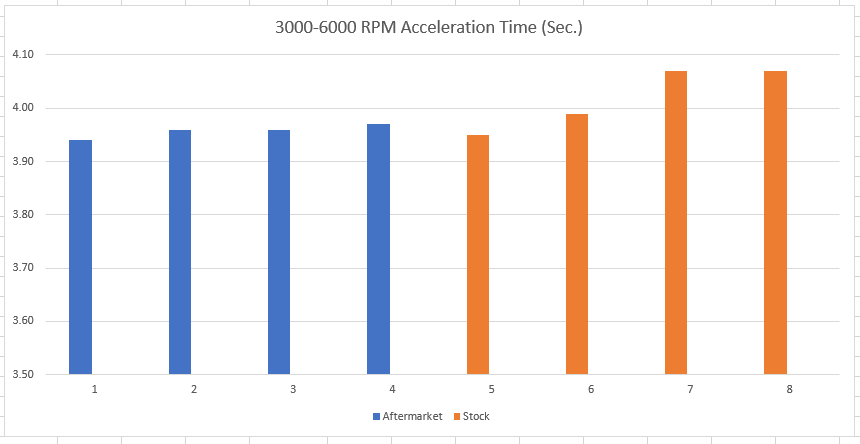
The median acceleration time with the aftermarket IC is 3.96 seconds compared to the stock IC at 4.03 seconds.
Note: While there is a time difference, based on some of the descriptions I have read about the benefit of an aftermarket IC I was expecting more than a seven one hundredths of a second difference.
The stock intercooler is compared with an aftermarket setup using Virtual Dyno.
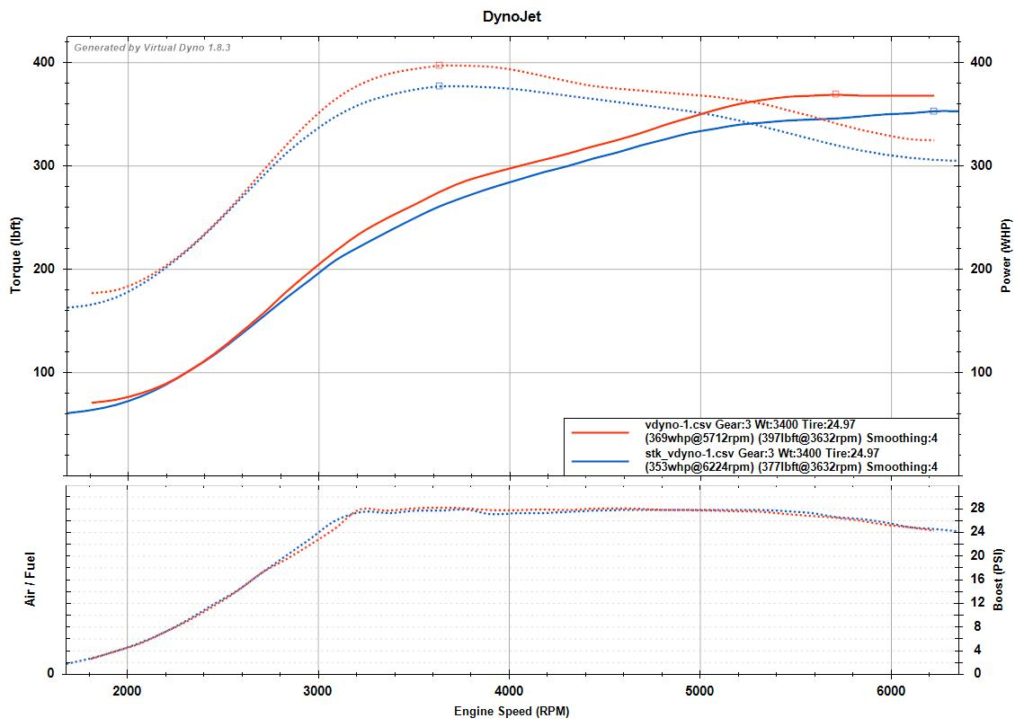
The red line is the aftermarket IC pull and the blue line is the stock GTI IC pull.
On average the aftermarket IC nets a maximum gain of approximately 20 whp above the stock GTI IC.
The aftermarket IC not only improves cooling but also pressure drop, both of which contribute to improved performance. The comparison of the turbocharger wastegate duty cycle is shown next:
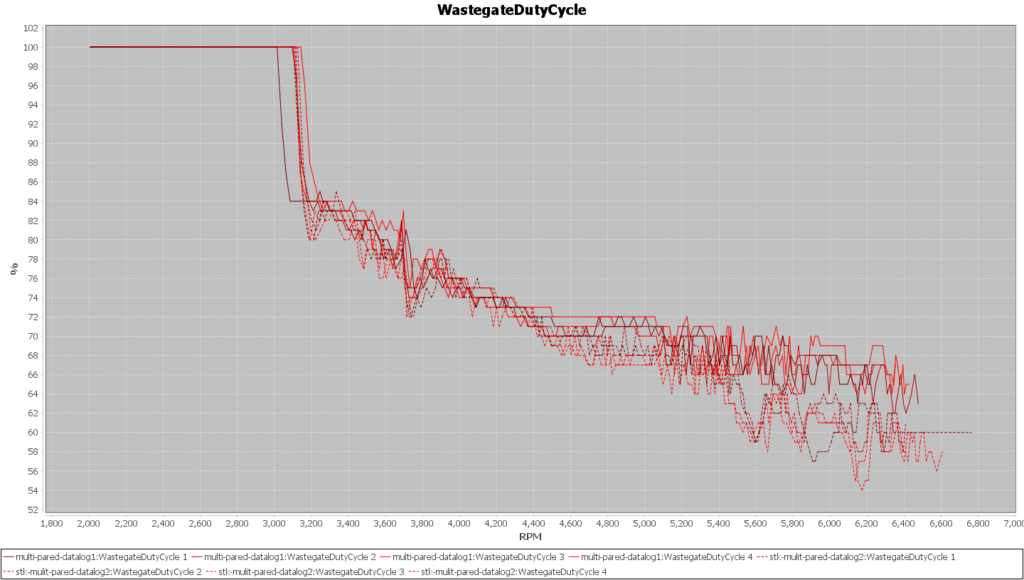
This result is surprising. The stock IC pulls show a lower wastegate duty cycle of 5-8% from about 5,500 RPM and up. This is surprising because the stock intercooler causes a larger pressure drop than the aftermarket IC, and the stock IC is operating at a slightly higher boost pressure. The stock IC pulls should have a higher duty cycle.
Thinking of what else could be affecting the results, the turbo inlet temperature is the first thing that comes to mind. This air temperature for the stock IC pulls is shown on the next chart:
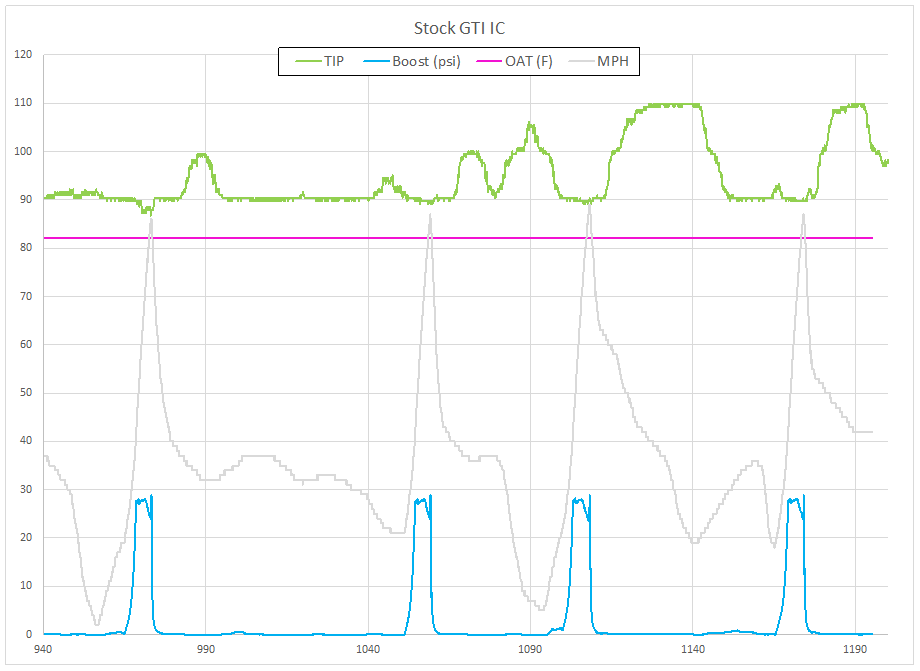
For the stock IC pulls the Eventuri intake is wrapped with an insulating layer. (Son of frost king experiment)
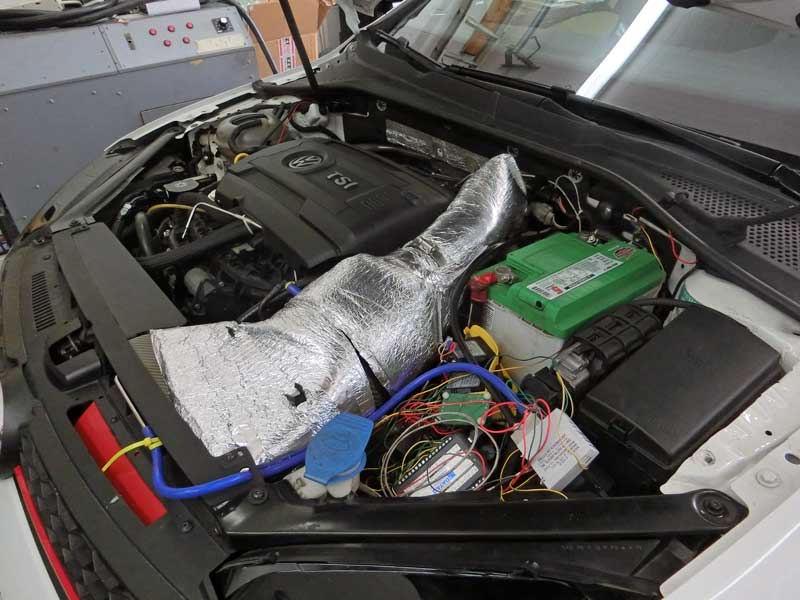
The wrap was removed during the aftermarket IC pulls. The turbo inlet temperatures during these pulls are shown next:
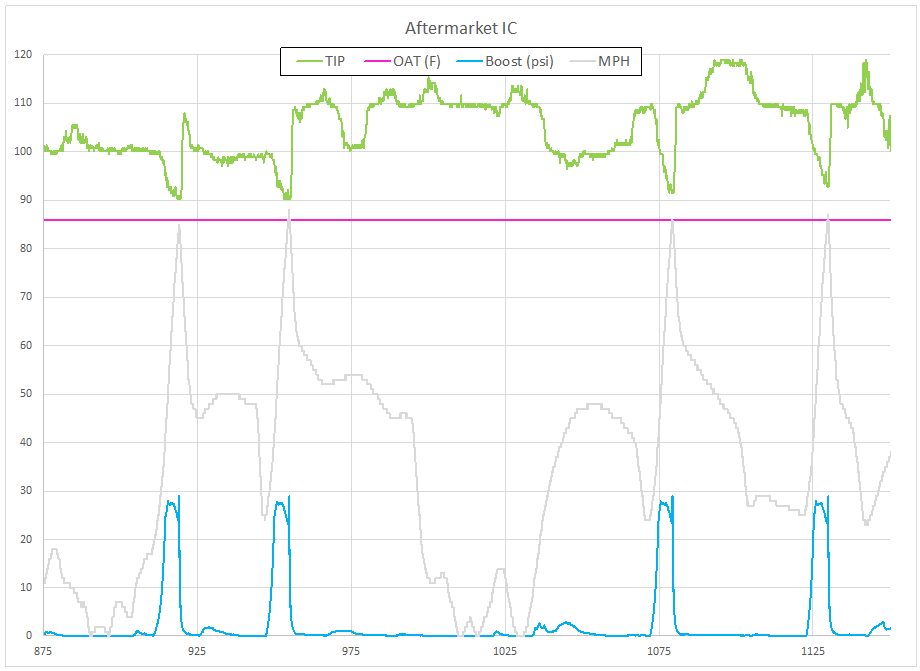
Although the wrap appears to dampen the temperature fluctuation compared to the aftermarket IC case, in the region of interest, above 5,000 RPM, the temperature going into the turbocharger is similar for both tests.
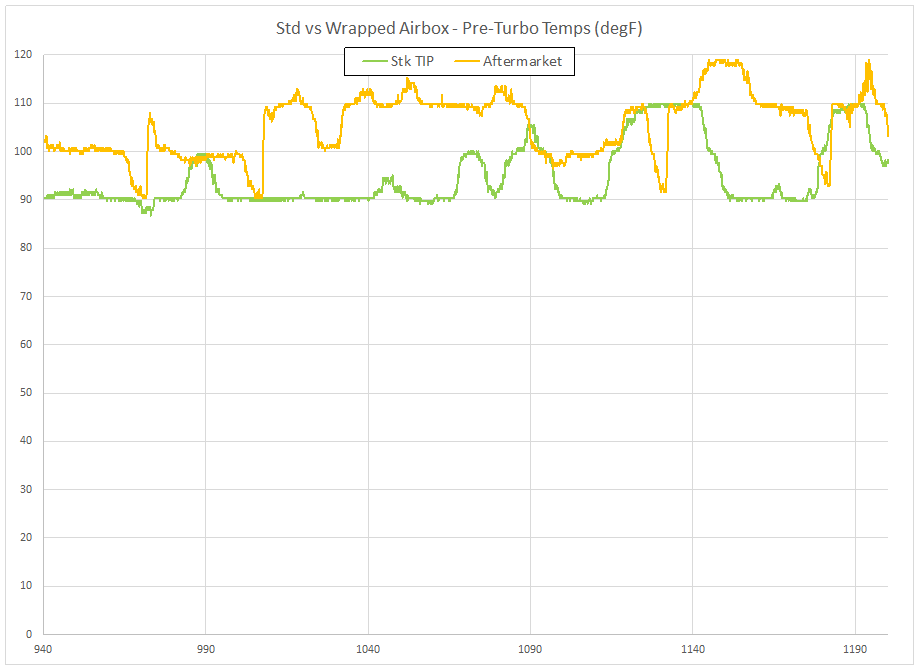
The temperature is similar for both tests, but not exactly the same. Before this experiment I would have guessed that such a small difference in turbo inlet air temperature would not have had a significant effect on the wastegate duty cycle. The results indicate this could be a bad assumption. Further testing is needed to better understand the relationship between turbo inlet air temperature and wastegate duty cycle.
Stock IC Cooling:
The final chart is a comparison of the temperature leaving the turbocharger versus the air temperature exiting the stock GTI intercooler during these pulls.
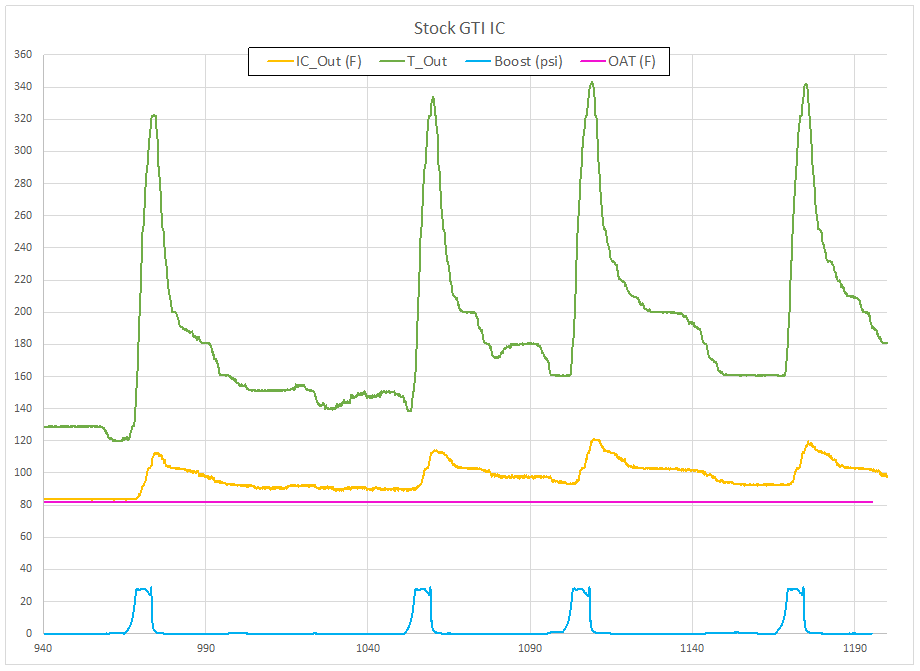
The air temperature exiting the turbocharger (T_Out) peaks between 320 and 340 degF. After exiting the stock IC (IC_Out) it has dropped by approximately 200-220 degF and is within 30-40 degrees of the ambient temperature (OAT). This equates to approximately 85% efficiency.
Conclusions:
Measurements taken with the stock GTI intercooler and an aftermarket intercooler show that the stock intercooler produces more pressure drop, and more temperature rise, than an aftermarket stock location intercooler.
The effect of less effective cooling on the ignition timing was a reduction of 1-1.5 degrees above 5,500 RPM. Acceleration time from 3,000-6,000 RPM increased by 0.07 seconds on average, with a noticeable increase to the times recorded at the end of making multiple pulls.
Pull data evaluated using Virtual Dyno showed peak gains of ~ 20 whp when using the aftermarket intercooler.
Whether or not these differences warrant being described as “massive” is arguable.
The stock GTI intercooler does a decent job at cooling the charge air under these test conditions, the aftermarket intercooler performed better.

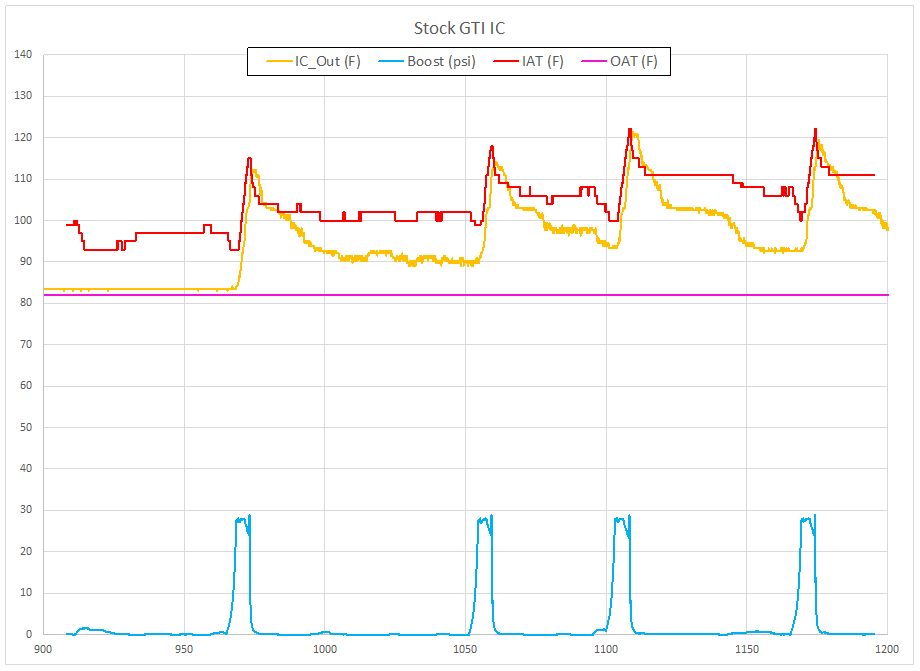
Great findings, as usual. It seems that replacing the stock intercooler for a daily driver doesn’t really make too much sense, unless, one feels the needs to run multiple pulls back to back.
Thanks!
Jeff, I’ve been following your work for quite some time now and it is impressive. I have a question for you. What would happen if instead of running the stock intercooler in a parallel config with an fmic; you ran them in a series instead? Would there be a pressure loss? Would it cool the intake air any better?
There would be more pressure drop. My guess is that cooling would not be much different, but that’s purely guesswork.